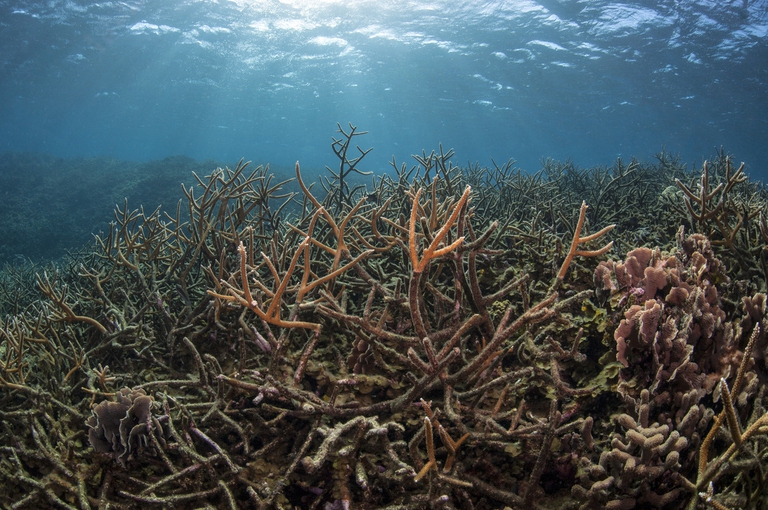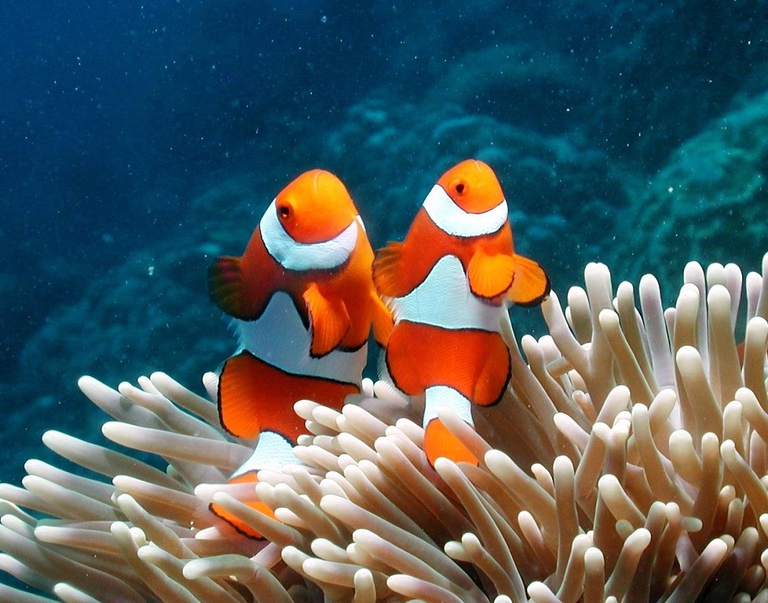
A group of experts in Tokyo suggested pouring radioactive water from Fukushima into the open sea. A marine biochemist explains the consequences of this absurd decision.
Lo sbiancamento avrebbe ucciso il 35 per cento dei coralli che compongono il sito australiano classificato Patrimonio mondiale dell’Umanità.
The Australian Great Barrier Reef, one of the most extraordinary and biodiverse places of our planet and World Heritage Site, is relentlessly dying. 35 per cent of its corals have died due to bleaching caused by rising sea temperatures, researchers of the James Cook University have shown.
Researchers led by Professor Terry Hughes have documented – through aerial and underwater observations – the most severe situation ever registered so far. The barrier reef has lost nearly half of its coral over the last 30 years.
The main threat to the Australian reef is climate change. Rising sea temperatures and ocean acidification, along with human-related activities and the invasion of a particular species of sea star that feeds on corals, are contributing to deteriorating one of the most biodiverse places on Earth. And warmer water temperatures result in coral bleaching. Corals bleach when the algae providing them with oxygen and nutrients leave the coral.
The death of corals triggers an inevitable knock-on effect that poses threats to the survival of other species that depend on the barrier reef for shelter and livelihoods. The reef extends for 2,300 kilometres on a surface of about 344,400 square kilometres off the coasts of Queensland, North-East Australia.
The southern part of the barrier, south to Cairns, hasn’t bleached thanks to a typhoon that, along with heavy rainfall, cooled down the water.
Siamo anche su WhatsApp. Segui il canale ufficiale LifeGate per restare aggiornata, aggiornato sulle ultime notizie e sulle nostre attività.
![]()
Quest'opera è distribuita con Licenza Creative Commons Attribuzione - Non commerciale - Non opere derivate 4.0 Internazionale.
A group of experts in Tokyo suggested pouring radioactive water from Fukushima into the open sea. A marine biochemist explains the consequences of this absurd decision.
The decline in grey and humpback whales in the Pacific and Atlantic Oceans has been traced to food shortages caused by rising ocean temperatures.
The United Nations has launched a major international alliance for ocean science, undertaking a mission close to all our hearts.
The cargo ship that ran aground off the coast of Mauritius on 25 July, causing incalculable damage, has split in two and its captain has been arrested.
The largest coral reef in the world is severely threatened by climate change, but researchers are developing strategies that could contribute to saving the Great Barrier Reef.
Seychelles have extended its marine protected area, which now covers over 400,000 square kilometres, an area larger than Germany.
Norwegian oil giant Equinor had pulled out of drilling for oil in the Great Australian Bight, one of the country’s most uncontaminated areas. A victory for activists and surfers who are now campaigning for the area to be protected forever.
30 per cent of the planet needs to be protected to stop precipitous species decline. The UN has set out its aims for the the COP15 on biodiversity scheduled for Kunming, China in October.
Ocean warming has risen to record highs over the last five years: just in 2019 the heat released into the world’s oceans was equivalent to that of 5-6 atomic bombs per second. The culprit, no doubt, is climate change.









